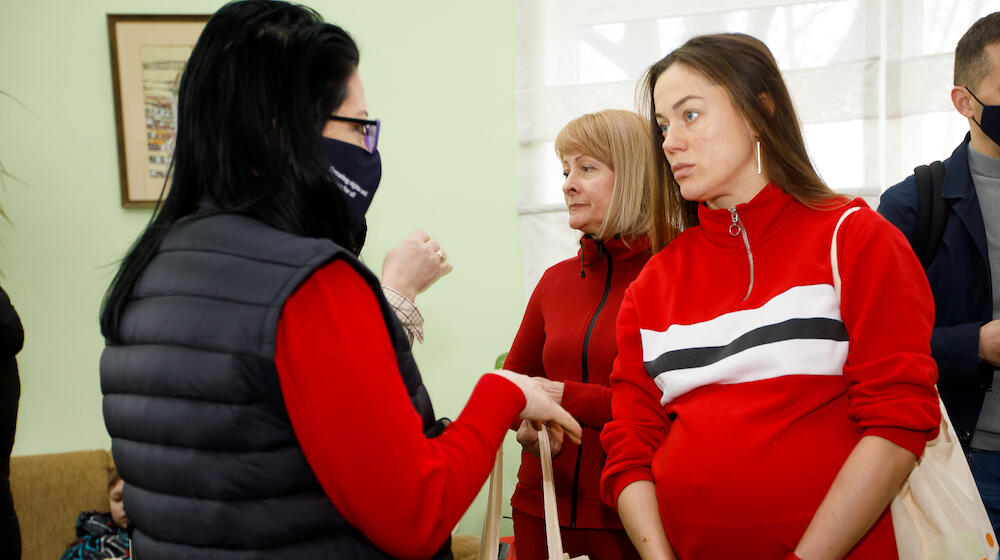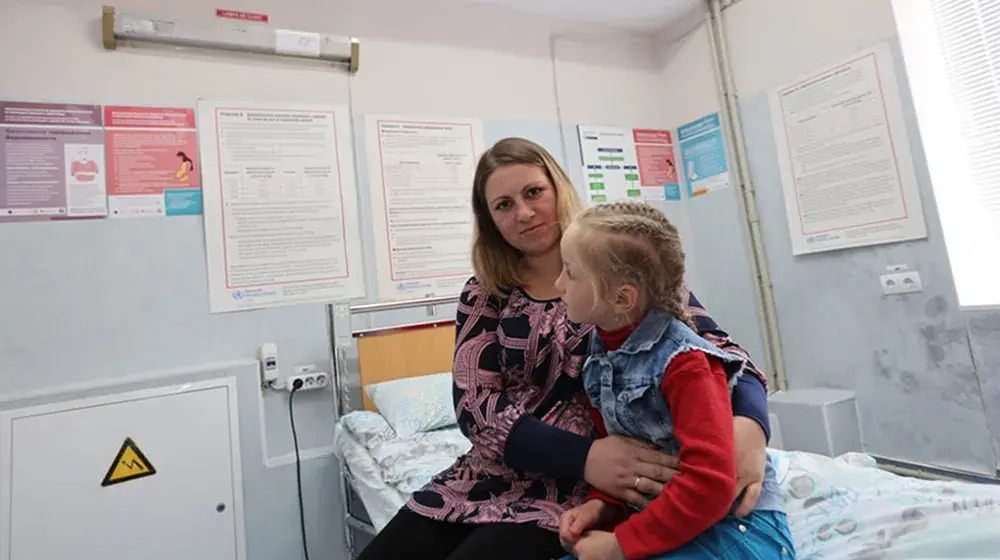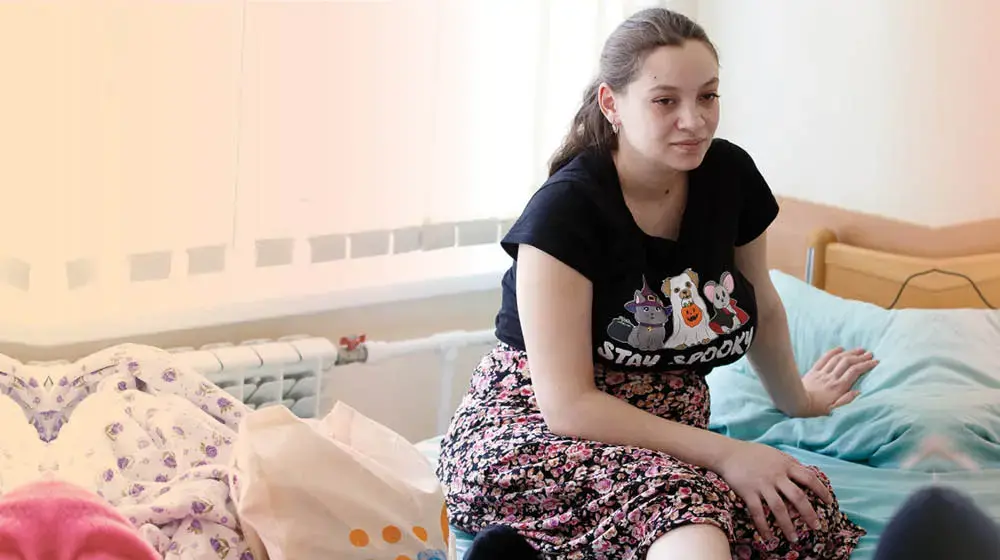Daria Smirnova, 33, left Odessa, Ukraine with her mother and son and arrived in Chișinău, the capital of the Republic of Moldova, approximately 180 kilometres away. Nine months pregnant with another boy, she is due to give birth in a matter of weeks.
CHIŞINĂU, Republic of Moldova – On the morning of 25 February, we departed from home. The day before, we had woken up early because of the loud bangs. Above my house, I saw a burning missile, which was terrifying. We started packing, moved to the basement and stayed there that night.
We could not resist anymore – we decided to go to the border. I have a small child and soon I have to deliver. It’s almost impossible to just sit and wait for a bomb to hit you.
The trip was very long and difficult. We were scared we would be shot at. We were running, cars were turning around, everyone was in a panic. We decided not to turn back and finally reached Chișinău very late in the evening.
Now many people are calling us, asking if there is a chance to come here. Everybody is afraid, everybody wants to stay safe. Our men stay there, our women try to keep safe. Others don’t want to leave but stay there to help.
I am so confused. I am thinking non-stop about what to do now. I can’t eat. I sleep a maximum of three or four hours at night. We haven’t decided anything concrete moving forward. I probably will stay here for the delivery, but after that, I don't know. I hope everything will be fine.
UNFPA has distributed 1,300 dignity kits with menstrual hygiene and sanitary items to Ukrainians in placement centres across the Republic of Moldova. The kits help women maintain dignity, self-esteem and confidence, and the ability to cope amid this humanitarian crisis.
UNFPA is also providing information on reproductive health services and referring pregnant women like Ms. Smirnova to medical care units. More than 100,000 people have crossed into the Republic of Moldova, according to the United Nations Refugee Agency.





